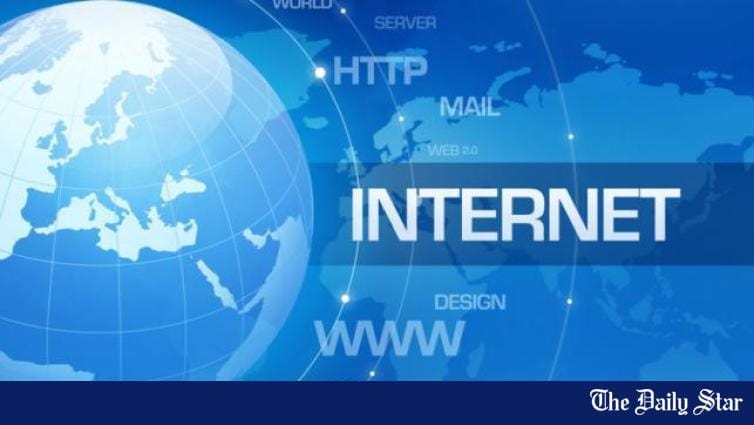Saif
Senior Member
- Joined
- Jan 24, 2024
- Messages
- 17,149
- Likes
- 8,163
- Nation

- Residence

- Axis Group


Asus launches 6 new laptops in Bangladesh
Asus has recently launched six new laptops in Bangladesh, including the new dual-screen Zenbook DUO (UX8406) model. The other laptops recently released are ZenBook 14 OLED (UX3405), ROG Zephyrus G14 (GA403), ROG Zephyrus G16 (GU605), ROG Strix G16 (G614), and ROG Strix SCAR 18 (G834).
Asus launches 6 new laptops in Bangladesh

Asus has recently launched six new laptops in Bangladesh, including the new dual-screen Zenbook DUO (UX8406) model. Image: Asus
Asus has recently launched six new laptops in Bangladesh, including the new dual-screen Zenbook DUO (UX8406) model. The other laptops recently released are ZenBook 14 OLED (UX3405), ROG Zephyrus G14 (GA403), ROG Zephyrus G16 (GU605), ROG Strix G16 (G614), and ROG Strix SCAR 18 (G834).
ASUS Zenbook DUO (UX8406), Zenbook 14 OLED (UX3405)
ASUS Zenbook DUO (UX8406) comes with dual-screen 3K 120 Hz OLED displays, an Intel Core Ultra 9 processor, 1.35 kg of weight, and a detachable full-size keyboard, touchpad, and built-in kickstand.
Zenbook 14 OLED (UX3405) features an ASUS Lumina OLED touchscreen, an Intel Core Ultra 7 processor, a 75 Wh battery, and 1.2 kg of weight.
Zenbook DUO (UX8406) is priced at BDT 2,52,000 and Zenbook 14 OLED (UX3405) is priced at BDT 1,60,000.
ROG Zephyrus G14 (GA403), Zephyrus G16 (GU605)
ROG Zephyrus G14 (GA403) and Zephyrus G16 (GU605) are gaming laptops with AMD Ryzen 9 processor and Intel Core Ultra 7 processor respectively, as well as NVIDIA GeForce RTX 4060 to RTX4070 graphics, ROG Nebula OLED display, and in-built neural processing units (NPU).
ROG Zephyrus G14 (GA403) starts at BDT 2,80,000, and ROG Zephyrus G16 (GU605) is priced at BDT 3,62,000.
ROG Strix G16 (G614), ROG Strix SCAR 18 (G834)
ROG Strix G16 (G614) is another gaming laptop with 14th Gen Intel Core i9 processor and NVIDIA GeForce RTX 4060 graphics. It also has a 16-inch display.
ROG Strix SCAR 18 (G834) is a high-end gaming laptop with 14th Gen Intel Core i9 processor, GeForce RTX 4090 graphics, 240 Hz 18-inch display, and advanced cooling technology for sustained performance.
ROG Strix G16 (G614) is priced at BDT 2,56,000 and ROG Strix SCAR 18 (G834) is priced at BDT 5,60,000.
According to Asus, these laptops are now available for purchase across authorised ASUS retailers in Bangladesh.
Asus has recently launched six new laptops in Bangladesh, including the new dual-screen Zenbook DUO (UX8406) model. Image: Asus
Asus has recently launched six new laptops in Bangladesh, including the new dual-screen Zenbook DUO (UX8406) model. The other laptops recently released are ZenBook 14 OLED (UX3405), ROG Zephyrus G14 (GA403), ROG Zephyrus G16 (GU605), ROG Strix G16 (G614), and ROG Strix SCAR 18 (G834).
ASUS Zenbook DUO (UX8406), Zenbook 14 OLED (UX3405)
ASUS Zenbook DUO (UX8406) comes with dual-screen 3K 120 Hz OLED displays, an Intel Core Ultra 9 processor, 1.35 kg of weight, and a detachable full-size keyboard, touchpad, and built-in kickstand.
Zenbook 14 OLED (UX3405) features an ASUS Lumina OLED touchscreen, an Intel Core Ultra 7 processor, a 75 Wh battery, and 1.2 kg of weight.
Zenbook DUO (UX8406) is priced at BDT 2,52,000 and Zenbook 14 OLED (UX3405) is priced at BDT 1,60,000.
ROG Zephyrus G14 (GA403), Zephyrus G16 (GU605)
ROG Zephyrus G14 (GA403) and Zephyrus G16 (GU605) are gaming laptops with AMD Ryzen 9 processor and Intel Core Ultra 7 processor respectively, as well as NVIDIA GeForce RTX 4060 to RTX4070 graphics, ROG Nebula OLED display, and in-built neural processing units (NPU).
ROG Zephyrus G14 (GA403) starts at BDT 2,80,000, and ROG Zephyrus G16 (GU605) is priced at BDT 3,62,000.
ROG Strix G16 (G614), ROG Strix SCAR 18 (G834)
ROG Strix G16 (G614) is another gaming laptop with 14th Gen Intel Core i9 processor and NVIDIA GeForce RTX 4060 graphics. It also has a 16-inch display.
ROG Strix SCAR 18 (G834) is a high-end gaming laptop with 14th Gen Intel Core i9 processor, GeForce RTX 4090 graphics, 240 Hz 18-inch display, and advanced cooling technology for sustained performance.
ROG Strix G16 (G614) is priced at BDT 2,56,000 and ROG Strix SCAR 18 (G834) is priced at BDT 5,60,000.
According to Asus, these laptops are now available for purchase across authorised ASUS retailers in Bangladesh.









































